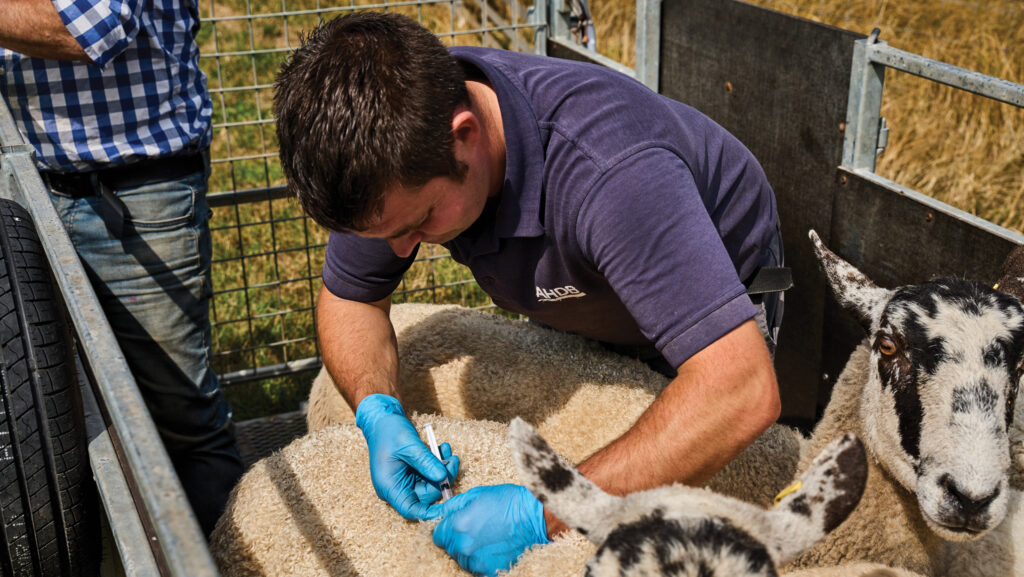Advice on winter measures to keep bluetongue virus at bay
 © Oli Lees
© Oli Lees Although falling temperatures will now curtail midge activity and bluetongue virus replication, farmers can still take measures to reduce infection pressure this winter by disrupting the midge life cycle.
Poorly ventilated housing not only affects livestock health and hygiene, it could also increase the risk of bites from infected midges.
But installing side curtains and improving ventilation would prevent midges from entering sheds, said Boehringer Ingelheim veterinary adviser Ciara McKay.
See also: Bluetongue virus: What to look out for and how to manage it
This can reduce the chances of insects surviving indoors through to spring. “It helps to insect-proof housing with curtains or positive-pressure tube ventilation to prevent midges landing on animals,” she said.
Ciara explained that Culicoides midges (the bluetongue vector) are only active at temperatures above 4C, while the virus can replicate in the midge when temperatures are above 12C.
“Temperature mapping showed that bluetongue virus outbreaks are more likely at 15-34C and peak time is late summer into early autumn, so the current risk of spread from midges is low,” she said.
Winter surveillance
“The government is starting a winter surveillance into 2026 to assess the extent of spread, taking blood tests in conjunction with TB testing.
“It is possible the midge can survive and overwinter inside, especially if it is not a cold one.
“Or the virus can survive in a pregnant animal, which then infects its growing lamb and [genetic] products such as semen and embryos.”

Ciara McKay © MAG/Shirley Macmillan
Ciara warned sheep farmers to continue to be vigilant in reporting any suspected cases because, aside from high mortality and reduced flock performance, the welfare impact of bluetongue in sheep is greater than in cattle.
Farms in bluetongue-affected areas should plan ahead in case scanning results show more empties than usual – an indication that bluetongue might be circulating.
Control measures
Ideally, stock will have been vaccinated before breeding to protect both ewe and developing foetus, said Ciara.
Unvaccinated sheep exposed to the virus while pregnant could end up with stillbirths, or produce small, weak lambs or lambs that do not thrive and die within a few days of birth, she pointed out.
“Figure out what the risks are on your farm and whether your control measures are enough, and discuss with your vet, especially if bluetongue is suspected.”
Using the AHDB’s bluetongue decision-making tool (PDF) could work out the cost-benefit of vaccinating, she suggested. Vaccination prevented clinical disease and reduced financial losses.
“It also keeps market access and can be used in lieu of testing and movement restriction and stops onward transmission,” she added.
Ciara McKay was speaking at the National Sheep Association’s Sheep Farmers’ Conference in Harrogate
